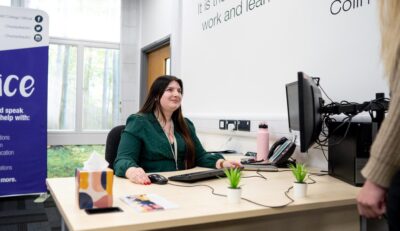To apply for university you must submit a UCAS application form and a personal statement. This is then assessed by university admissions staff, who will be in touch to either provide you with an offer or reject your application.
UCAS APPLICATION ADVICE

The Careers and Employment Hub is here to provide you with advice on your UCAS application and personal statement but here are a few pointers to get you started:

Meet the selection criteria
Every course should have a set of selection criteria that are available to review. Look at the UCAS website and the course-entry pages of individual universities. This will tell you what subjects you should be taking, what points they’re expecting, what GCSE background they want, and whether there are other specific things they’re looking for.
Attain the grades they are looking for
Your reference will include a prediction of the grades your teachers expect you will get. Knowing your predicted grades is a crucial aspect of making sensible university choices because you’re likely to get rejected if you apply for a course asking for higher grades than your referee says you will get.
Stay in your referee’s good books
Your UCAS reference is as important as your exam results and your personal statement. In it your referee predicts your A Level grades and makes the case for offering you a university place. Take care to build a positive relationship with your referee – be on time for meetings, stick to deadlines, ask for advice etc.
Your Personal Statement counts
The UCAS Personal Statement is where you write about why you want to study your chosen degree, who you are and what you’ve done. What you say matters and how you say it matters just as much. Here’s where you show your commitment and where you describe your interests and achievements. Don’t know where to start? Ask the Careers and Employment Hub for advice, they are there to help.
Beyond your quals
University admission staff like to see interest, commitment and independence outside of the classroom. Have you done any volunteering or work experience perhaps? These will almost certainly help to show how you meet any soft skills selection criteria.